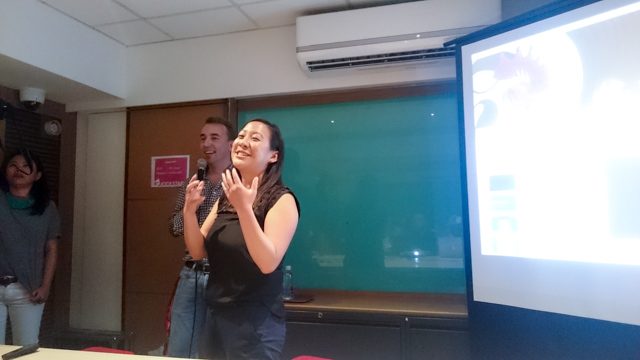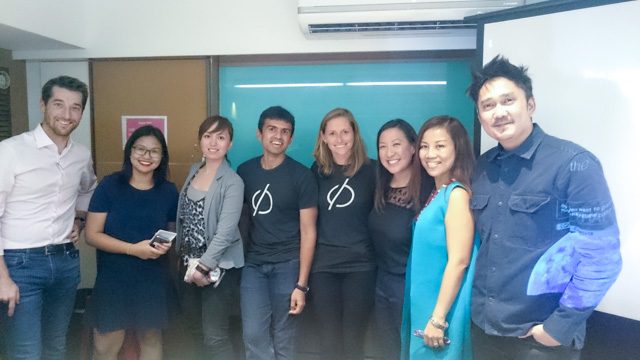SUMMARY
This is AI generated summarization, which may have errors. For context, always refer to the full article.

MANILA, Philippines – The Internet has completely transformed the world and changed – or disrupted as tech-savvy people would say – the global economy through the power of real time communication.
While from Hanoi to New York, most of the world’s urban dwellers have Internet access, there are still around 5 billion people, more than half the world’s population, who have never opened a webpage.
It is this disconcerting fact that prompted Facebook to launch its Internet.org platform, envisioned as a way to bring connectivity to those who have never used the Internet before, for free.
Free basics by Facebook
The initiative caused some controversy when it was launched earlier this year regarding Internet impartiality issues. (READ: Indian companies pull out of Internet.org initiative)
This controversy was seen by industry watchers as one of the primary reasons behind Facebook’s renaming, on September 24, of the intiative’s website and app to “Free Basics by Facebook.”
The Internet.org name now connotes the wider initiative which the app and website are a part of.
Critics voiced concerns that the platform violated the principles of net neutrality by keeping tight controls on what services would be allowed on the free-to-use platform.
To allay these fears, Facebook has also opened the platform to all developers. This allows it, in effect, to be used as a way to crowd source solutions to developmental problems on a global scale.

The Philippines as a guide
“Personally, I think the Philippines will be a critical market in terms of leading the way for developers in other countries to see what’s possible,” said Jackie Chang, product partnerships manager for Internet.org at Facebook.
She made the statement before an audience of local developers at Globe Telecom’s monthly #raidthefridge startup gathering hosted by subsidiary Kickstart Ventures, held on September 24.
Chang highlighted the enthusiasm and in particular, the speed, in which local developers have embraced the platform. “The Philippines will serve a great lighthouse to other developing nations.”
That’s always going to be the gap between different developing countries as some of them still have really nascent developer communities, Chang said.
A lot of developers there do not know what to create and there might not be a lot of local content yet, she explained, adding that this is why they will naturally look to more advanced markets like the Philippines and its thriving developer base to see good examples of how to use the platforms.
“To be honest, I would want to see what people want in all the different the communities. We’re trying to do a lot of efforts to reach out to as many as possible because every community is going to have a different view,” she said.
The country at once features a very digital-savvy population, hand in hand with rural farming and fishing communities spread throughout the archipelago that are completely off the digital grid.
They represent a previously inaccessible audience and being able to connect directly to them opens a whole new corridor of opportunities for both community members and developers.
One of the developers in the audience, Chang pointed out, created Price Watch (also known as Bantay Presyo, a service that helps farmers monitor the pricing for their goods in real time.
Another example of this is OFWguru, a service that used the platform as a launching pad to give overseas Filipino workers advice as well as jobs, as the service and JOFOM, a service developed by Jobstreet, are aimed at finding blue-collar workers with jobs.
Agriply, a forum for agricultural related information and discussion, has seen its user engagement grow exponentially through the Internet.org platform.
“At the end of the day, I don’t think it’s fair for me to tell you what people need. We’re just taking feedback in, so when people write in, telling us what they need, we take that feedback to developers,” she said.

Profit incentive
Reaching the most amount of people really boils down to creating awareness and educating people about the possibilities and since the service is free, we have to find sustainable economic models to be able to do this indefinitely, Chang shared.
One example of this is Facebook’s partnership with the country’s two dominant carriers, Globe Telecom and Smart Communcations, giving about 80% of the population free access to the Internet.
Users need only a SIM card from either network and a mobile device capable of basic Internet connectivity to access the platform and all its services using free data. (READ: Rappler ties up with Facebook’s Internet.org, Smart Communications)
“The idea behind getting onboard Internet.org stemmed from the free data for Facebook plans we provided and we expanded it to include a wider range of services through this initiative,” shared Globe Telecom Senior Adviser Daniel Horan.
For the mobile networks, and some developers, partnering with the platform is not only a way to give back but is also a way to attract users to its more premium, and paid, services.
Data from Facebook shows that 50% of people who access free basic services go on to use other paid services.
“When people first start experiencing Internet, they begin to understand its value and so they pay for data service to access more premium content and we don’t want to restrict that,” Chang said. (READ: Video on demand to ‘enrich’ Filipino’s lives)
This provides the sustainable economic model that allows telcos and developers to keep expanding its infrastructure and services to provide free service to reach more and more people, she explained.
The more services offered and infrastructure provided, the more people get connected, which ties in with their goals, she said.
Since its launch earlier this year, Internet.org has allowed 9 million people in 18 countries to experience Internet for the first time while offering more than 100 services on the platform. A lot more is expected, now that it has been opened. (READ: 57% of world population still offline)
“It’s a global effort. As more and more services come onboard and create innovative new things, what they are really doing is improving and enriching the lives of people who are accessing Internet for the first time,” Chang said. – Rappler.com
Add a comment
How does this make you feel?
There are no comments yet. Add your comment to start the conversation.